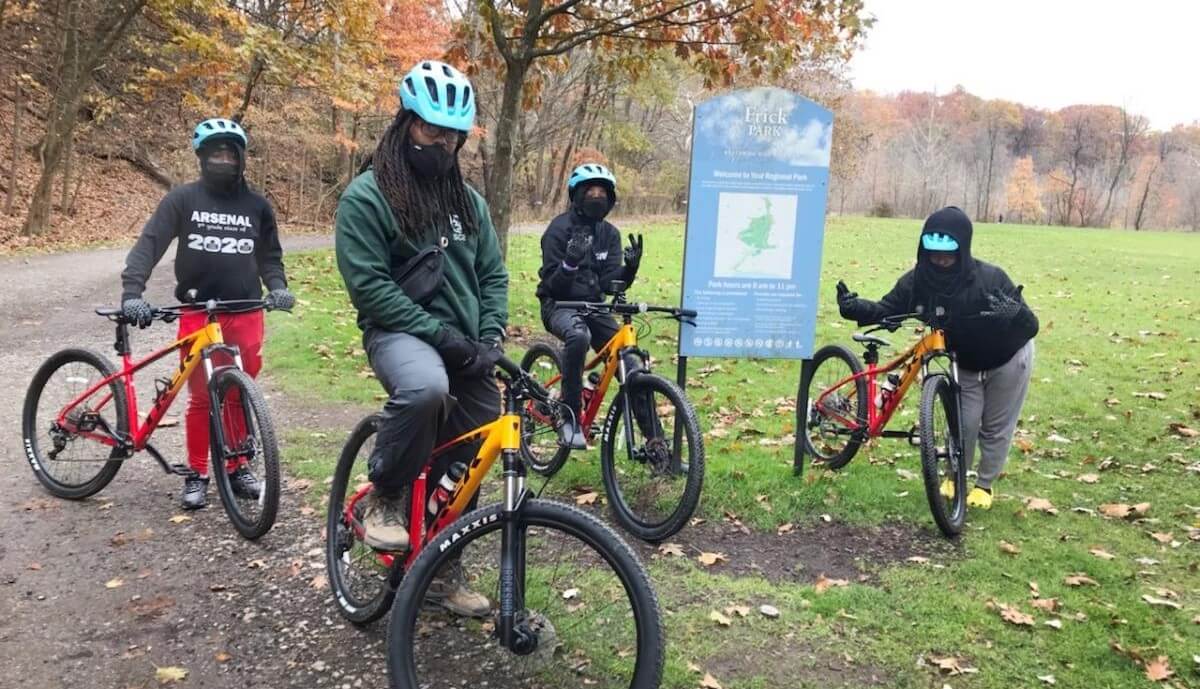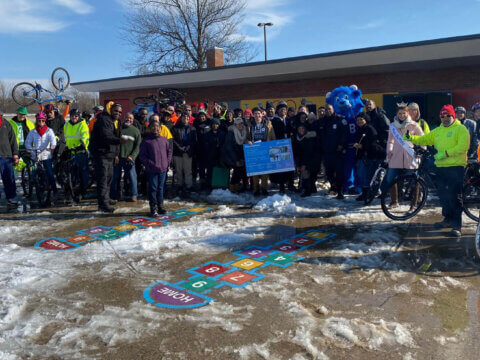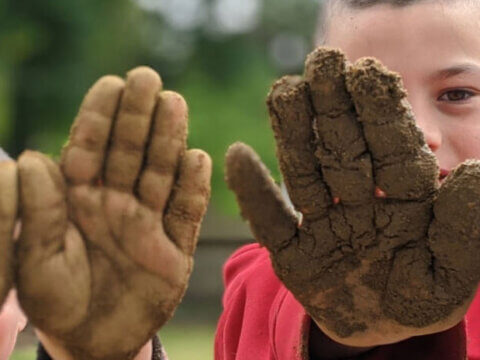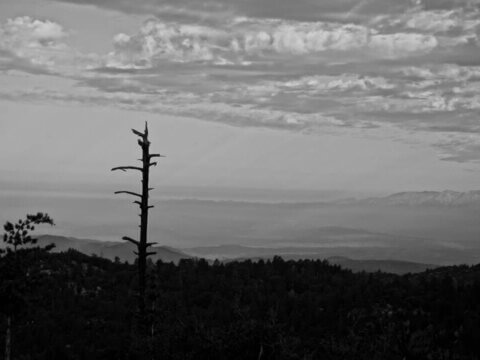In cities across the nation, the SCA is building mountain bike trails – and BIPOC youths’ love for the outdoors
In high school and college, Blayze Richardson didn’t spend much time outdoors. But, after a visit to the rural environs of Idaho, he discovered the joys of mountain biking, and he was hooked.
When he returned home to Pittsburgh, he lamented the fact that other Black youths like him would likely never have that type of experience.
Richardson, now 30, is working with the Student Conservation Association (SCA) to change that.
These days he leads an SCA crew in that city, which, among other things, introduces Black, Indigenous and People of Color (BIPOC) to mountain biking, an activity that tends to be portrayed as being only for white people.
“In Idaho, I learned that mountain biking was really cool. When I learned what [SCA] community crews do, that put stars in my eyes, because I like the outdoors. Knowing that I could bring kids together in the outdoors — that seemed perfect at the time,” Richardson explains.
SCA is a nationwide nonprofit organization dedicated to building a new generation of conservation leaders through hands-on service to the land. Its community crew program, which provides participants with career training as they construct trails and restore habitats in city parks, has been cited by the U.S. Conference of Mayors as one of the nation’s top green jobs programs for youth.
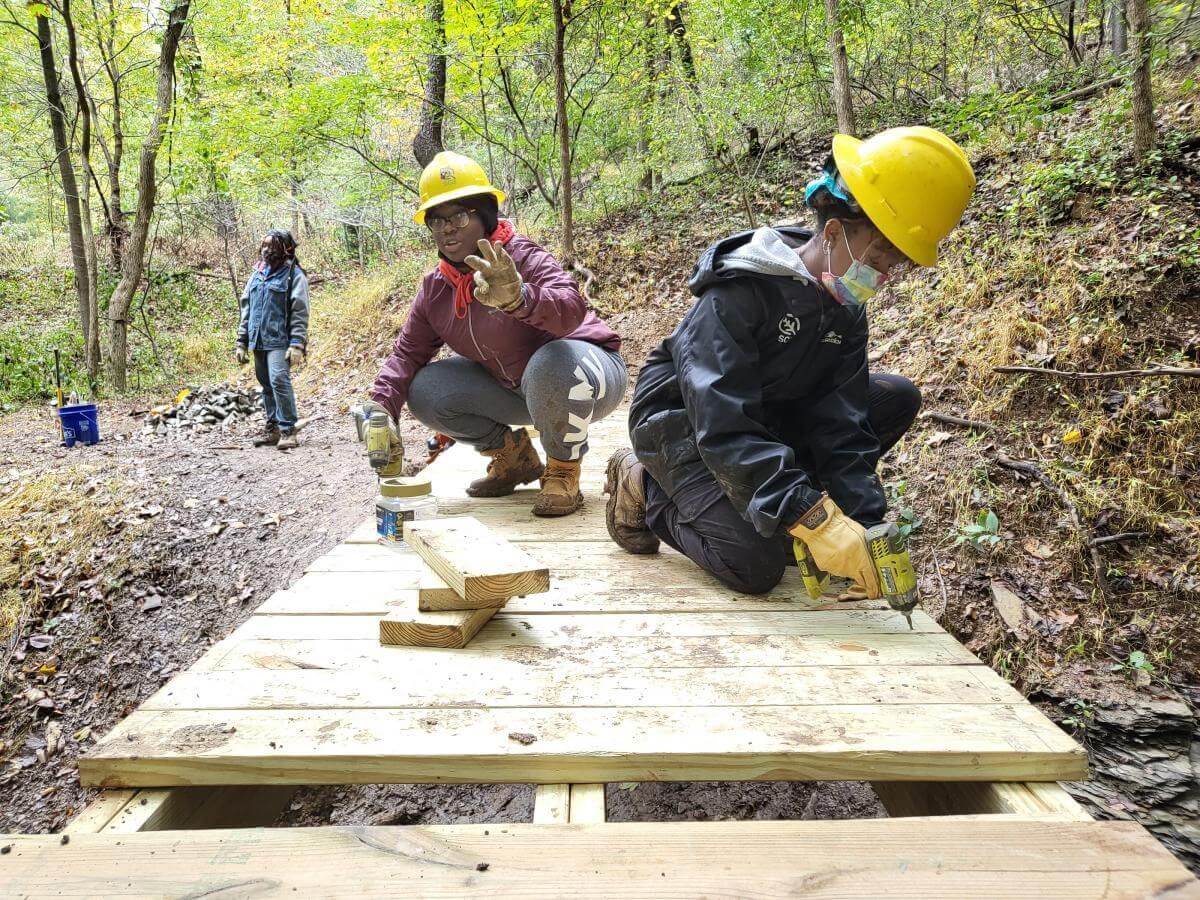
An SCA Pittsburgh summer high school crew builds trails near the city.Photo courtesy of the Student Conservation Association.
SCA hopes that through crew leaders like Richardson, it can help other youths of color forge lasting connections with nature and spur interest in a range of outdoor activities, including mountain biking.
Research shows that when young people enjoy recreational sports, like mountain biking, they view their self-identity as one of respect and appreciation for nature.
And just as important is the type of programming. Programs that use active, hands-on activities, that focus on place and local issues, and that include an active and engaged leader build greater environmental attitudes. This is exactly the intention and focus of SCA’s mountain biking crew, and what Richardson hopes to accomplish.
Kelly Runzel, SCA’s Senior Director of Corporate and Community Engagement, said SCA wants to help change the way urban BIPOC youth connect with nature through activities such as mountain biking. The organization has established mountain biking crews, with six youths each, in Pittsburgh, Chicago and New York City.
Before that, SCA crews built the first mountain bike course near Detroit at Rogue River Park. Through a partnership with Trek Bicycle, a bicycle manufacturer and distributor, SCA also worked on mountain biking trails in Cleveland and Chicago.
“Rogue River Park happens to have the only mountain bike course in the [Detroit] metropolitan area, which is the most densely populated area in Michigan,” Runzel said.
“Through the process [of creating the trails] we realized that a lot of the youths just don’t have access to outdoor recreation because it’s just not a priority to create opportunities for them in those communities. We figured that if we were going to create an interest in mountain biking, the first thing we would need to do is build mountain bike trails in diverse communities.”
Trek Bicycle, Runzel said, has also been key in the program’s success by providing bicycles to the youths.
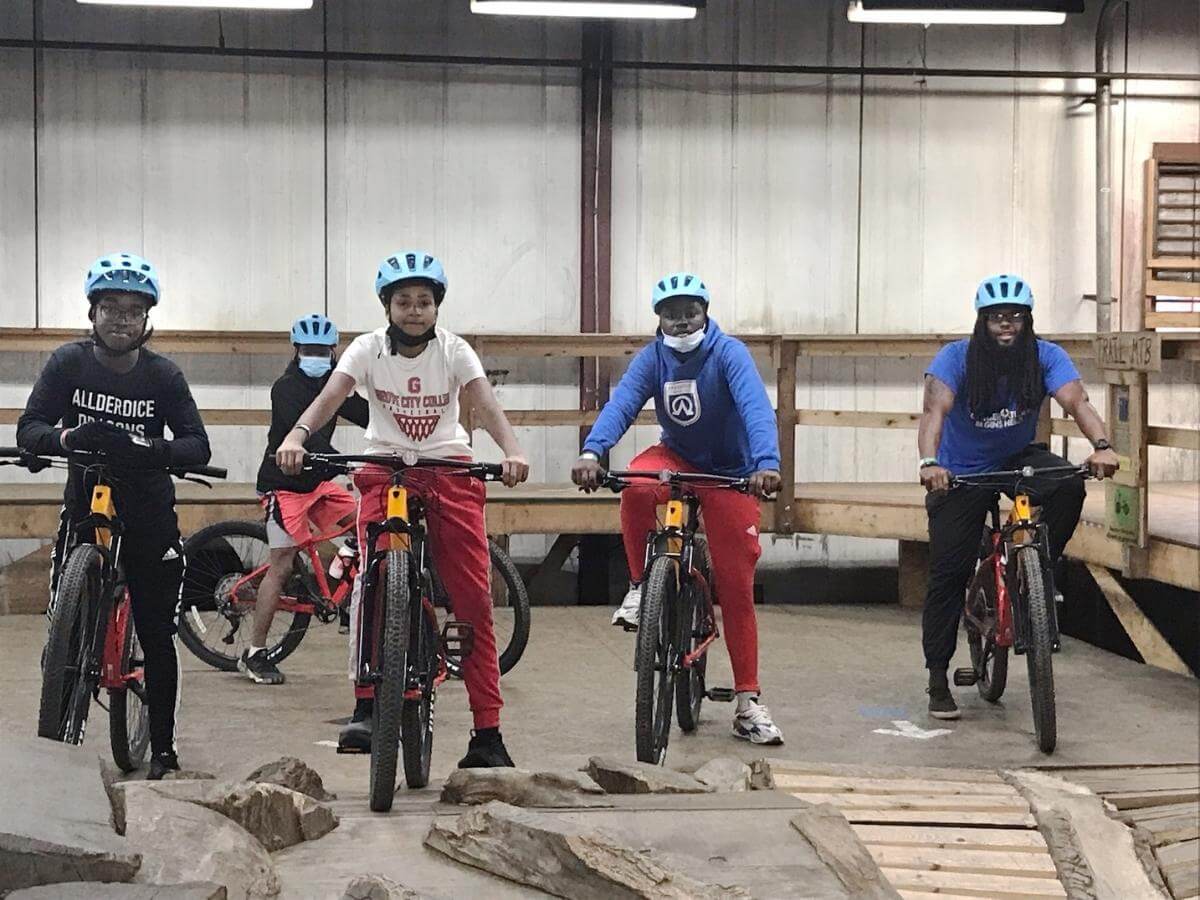
Richardson (far right) and fellow SCA Pittsburgh crew members ride and build mountain biking trails throughout the city.Photo courtesy of Blayze Richardson.
According to Richardson, yet another barrier in piquing urban youths’ interest in mountain biking is helping them to get past the notion that mountain biking is only for white people — it’s a notion that he’s come face-to-face with.
“White people try to stereotype me, but I’m like, ‘Hey, I like the woods too. Don’t treat me like you think I am,’” Richardson said.
One glimpse of the scarcity of BIPOC mountain bikers was revealed in a survey of readers of Singletracks, a website that reaches about a million mountain bikers in the US and Canada.
It showed that 4 percent were Hispanic, 3 percent were Asian, and 1 percent were Black.
Ninety percent of its readers, according to the survey, were white.
SCA believes representation matters, which is why it’s important to have leaders like Richardson leading these SCA crews. “Marginalized youth feel more comfortable experiencing the outdoors with people who look like them,” Runzel said.
What has helped Richardson stay the course is the fact that SCA pays livable wages to him as well as to the high schoolers in its programs.
SCA hopes that as more BIPOC youth begin to experience the outdoors through activities like mountain biking, they will learn to appreciate it in a more meaningful, personal way.
“They’re experiencing nature, they’re conserving it in a way that’s ethical, and they’re building access points to other youths in their community to experience nature,” Runzel said. “Part of our philosophy is that if you love the outdoors, and you love to recreate in the outdoors, you’ll have a greater desire and passion for preserving it.”
Infographic: Reaching Youth’s Full Potential Through Nature
Youth Development & Nature Toolkit: A toolkit for providers of youth programs
Promoting personal growth in young people experiencing homelessness through an outdoor-based program
‘We don’t enjoy nature like that’: Youth identity and lifestyle in the countryside
A qualitative investigation of Californian youth interests in the outdoors
Where are youth active? Roles of proximity, active transport, and built environment
-
Feature
GROWING POWER: Urban Roots connects young people with natural spaces, food systems – and one another
-
Feature
Nature photographer Dudley Edmondson has a vision for the representation of Black and Brown faces in the outdoors
-
Network News
Community Spotlight: Prescribe Outside
-
Richard Louv
SPRING FORWARD! 12 Ways to Make Sure Your Kids (and You) Get the Right Dose of VITAMIN N this Spring — and Summer, Too
-
Voices
Placemaking: How to build kinship and inclusive park spaces for children with disabilities


